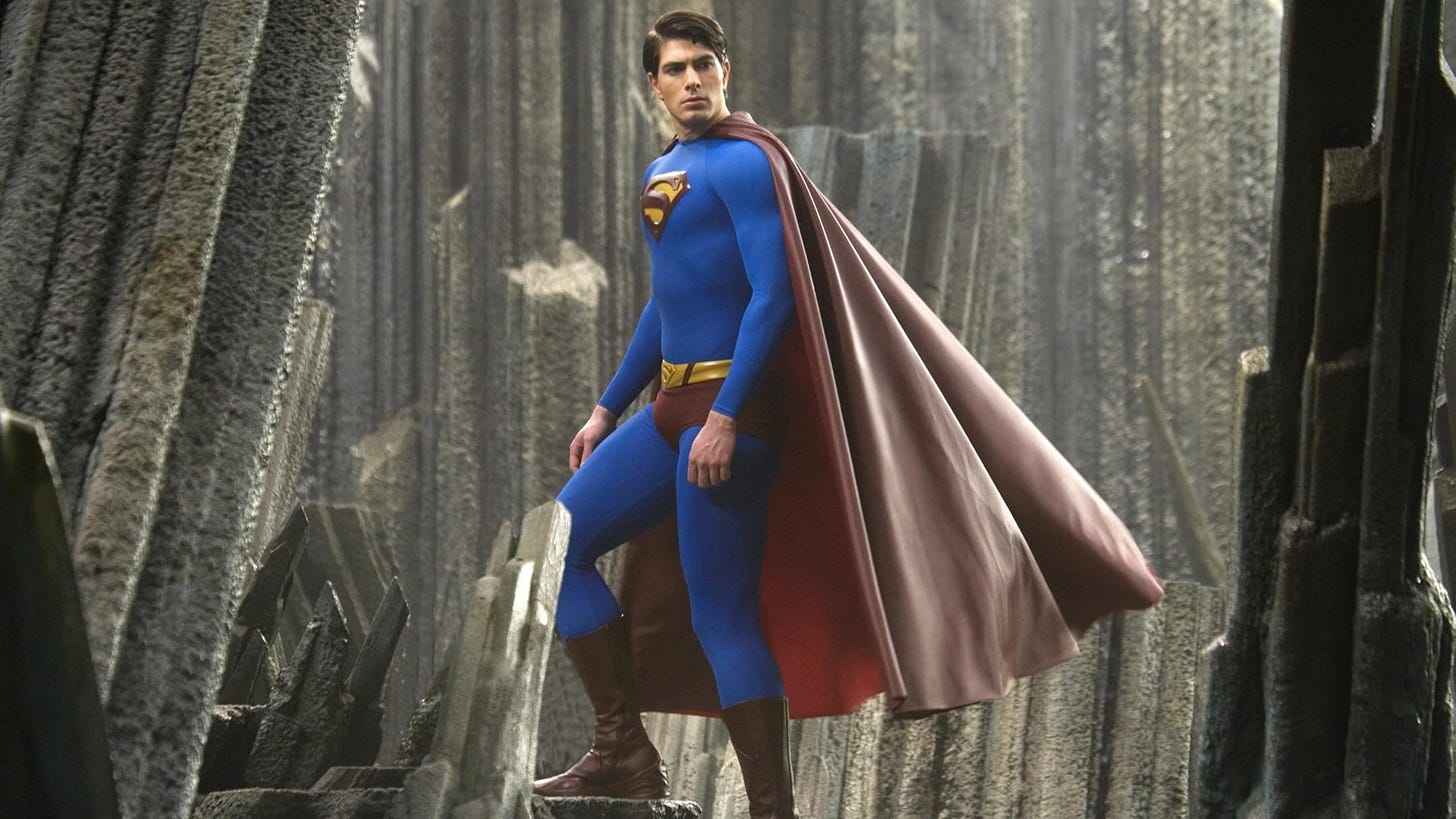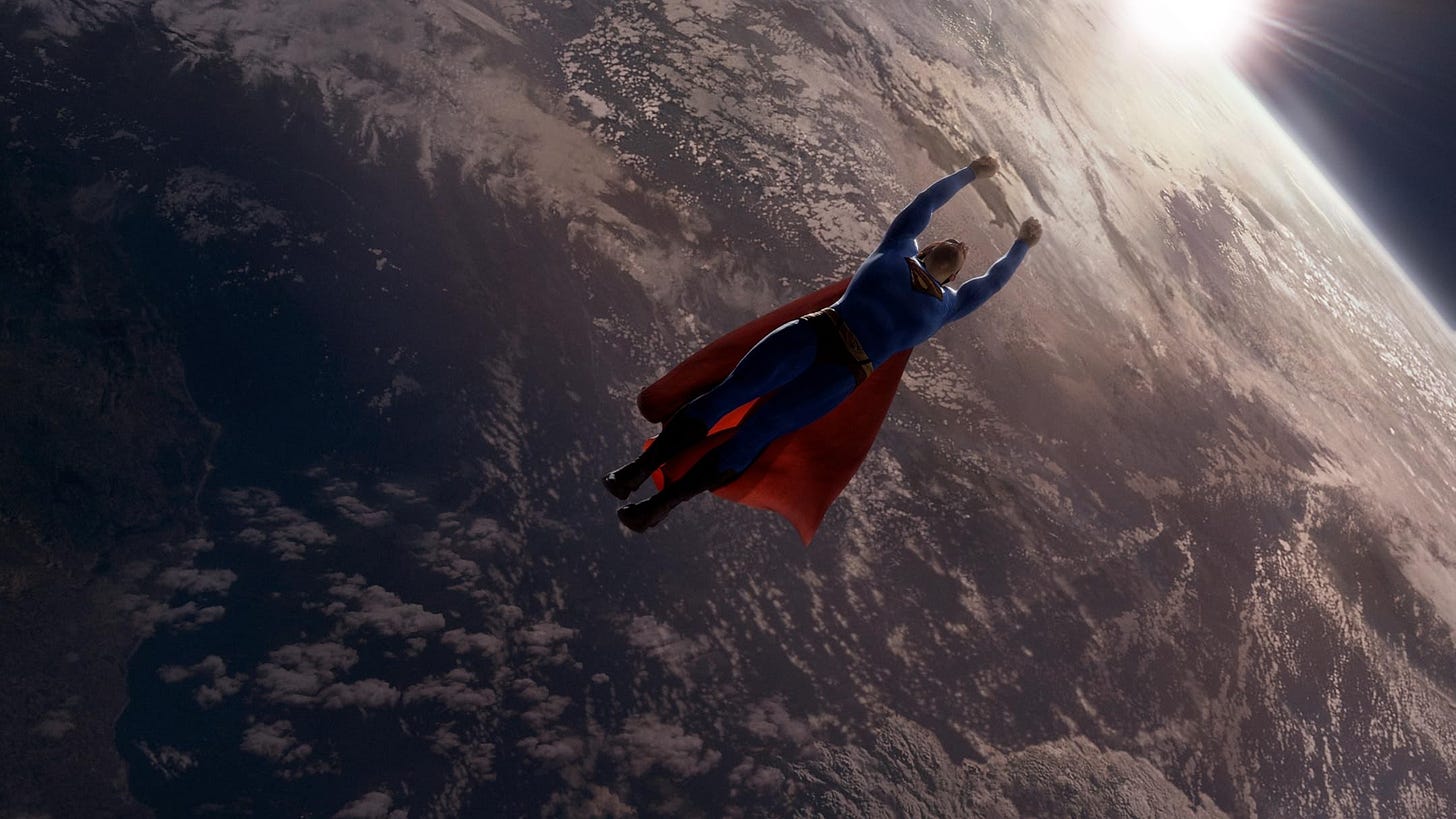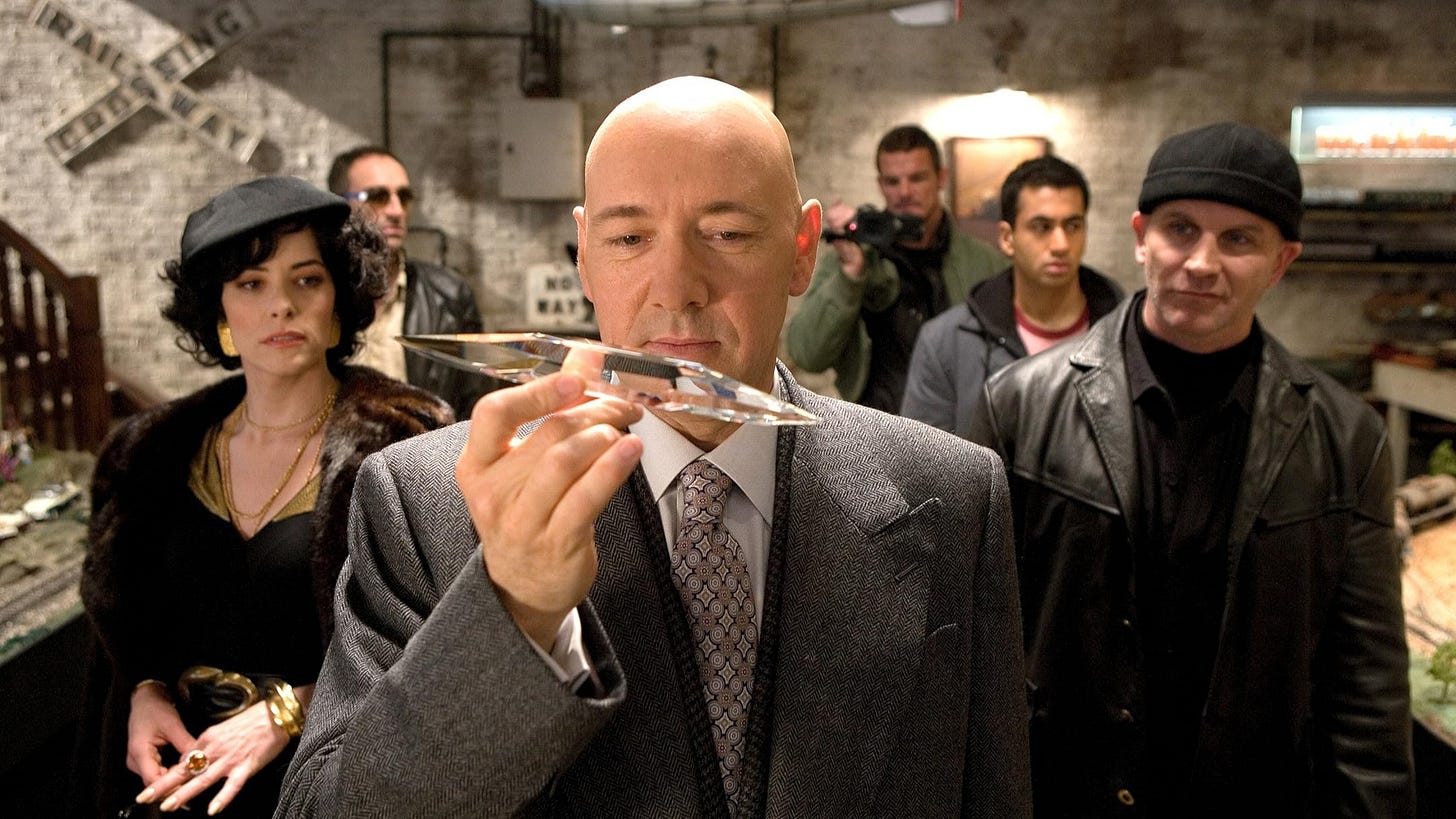Nearly two decades after Christopher Reeve stepped away from the cape, Warner Bros. decided it was time for a new Superman to take flight.
While Superman Returns attempts to be a follow-up to the Reeve movies, it brings too many ideas to the table and lacks a narrative interesting enough to do any of them justice. In doing so, it becomes the worst thing a superhero movie can be: boring.
Trying to land somewhere in the middle of origin story, sequel, and reboot, Superman Returns struggles with an identity crisis.
There are three plotlines at play: Lex Luther’s master plan, the reveal of Superman’s son, and a world left without Superman for five years. If the film had allowed one of these ideas to take center stage, it might have become a success during the era in which the modern superhero movie began to take shape.
Luthor’s plot takes place in the background; the villain doesn’t even share a scene with Superman until nearly two hours into the movie. While a significant amount of screen time is dedicated to him, Luthor fails to bring anything new to the story, with his plan to create a new landmass being extremely similar to Gene Hackman’s in the original movie. Instead of a bumbling sidekick, he has a crew of henchmen, some of whom don’t even speak. Only Kitty (Parker Posey) shows any form of personality, ultimately betraying Lex in yet another echo of the ‘76 original. Instead of bringing a new villain to life, like Brainiac or Bizarro, the film is content with following Superman: The Movie beat for beat.
While Lois Lane’s son Jason is telegraphed early on to be more than meets the eye, his existence never plays a significant role in the plot. Instead, he becomes just another layer of Lois’s role as the damsel in distress. Raised in the five years that Clark has been gone, Jason’s presence raises questions that the film seems uninterested in answering. Superman and Lois never talk to each other about their child, except for a single whisper near the end of the film. Even after the movie concludes, the audience is left to wonder how Clark will handle the existence of the half-Kryptonian. The decision for Lois to raise Jason for five years while Superman is offworld should be a primary plot point. Unfortunately, it’s treated like a twist with no payoff.
Superman’s five-year absence is never fully felt either. In a movie called Superman Returns, you would think that the effects of Superman’s… return would feel substantial, with his disappearance resulting in some sort of power vacuum. Apparently, no super-level threats have occurred that would make the general public miss their hero in the last half-decade. Instead, the Earth has kept on spinning, as if the Man of Steel never left an impression.
Superman Returns isn’t funny, and it definitely isn’t gritty or down-to-earth. The film avoids the campy/comedic traits that other superhero movies, such as Daredevil (2003) and Fantastic Four (2005), adopted, while also removing any grounded realism found in movies like Batman Begins (2005) or Iron Man (2008). While comic book movies can thrive by standing apart from the crowd, the 2006 release hits all the wrong notes. Without a sense of humor, a competent villain, or a relatable hero, it feels more like someone’s retelling of a story than its own idea.
Somehow, there are just two action scenes in this mid-2000s superhero movie. The first is a fast-paced plane crash sequence that feels like an updated version of the helicopter rescue from the 1976 original. This scene is our first look at Superman doing anything heroic, and it comes nearly an hour into the film. Superman is forced to navigate debris as he follows the plane to the ground, before catching it above a baseball field. It’s a fun bit of action that announces to the world that Superman is back.
Later, Superman soars through Metropolis, saving people from the aftermath of an earthquake. These rescue scenes allow Superman to show off his powers, but this one comes too late in the movie to inspire any excitement, during a climax that otherwise takes place in an ocean devoid of color.
Superman’s final feat of strength isn’t about beating anyone in battle like in Man of Steel or securing a moral victory over Luthor, like in James Gunn’s Superman. Instead, he lifts a big rock.
It isn’t Brandon Routh’s fault that he’s in the worst Superman movie. He manages to capture the clumsiness needed to play Clark Kent, but he clearly wasn’t ready to take on the weight of the world’s most popular superhero so early in his acting career. With just a few appearances on shows like Gilmore Girls and Will and Grace under his belt, Routh was basically a complete unknown when he was chosen for the 2006 role. He donned the cape once more in a CW crossover with The Flash and Arrow in 2019, during which he showed just how much he had grown as an actor. If this movie had been made just a few years later, Routh could have easily become the man an entire generation pictures when they think of Superman.
However, the same can’t be said for the rest of the cast. Awkward performances hold back the film, erasing the charm of the original film’s setting and making the 160-minute runtime feel excruciatingly slow.
Kevin Spacey might be the strangest Lex Luthor I’ve seen on screen (even counting Jesse Eisenberg’s portrayal). Instead of controlling the plot with his intellect, he seems to stumble toward the movie as a smarter-than-average conman, often surprised by the results of his own actions. His presence chews away at the film, but it remains empty of the gravitas necessary for the role. The unserious portrayal leans comical at times, resulting in it feeling out of place in a movie that wants to be taken more seriously.
Kate Bosworth and James Marsden play Lois Lane and her husband Richard, introducing a love triangle element that adds to the film’s bloated feeling. I’m a big James Marsden fan, from X-Men to Jury Duty to Paradise (check it out), but here he’s forced to play third fiddle to a Lois and Clark pairing that produces zero chemistry. The film invites us to sympathize with Richard as he struggles to hold his family together, while we also hope that Clark uncovers the truth about his son. Richard unintentionally makes Superman seem like a homewrecker who eavesdrops on the couple and appears surprised or even jealous after learning that Lois has moved on while he was away.
The problem with Lois Lane, and perhaps Superman as well, could be the actor’s youth. Bosworth and Routh were 22 and 25 at the time of filming (Kidder and Reeve were 30 and 26 for Superman: The Movie). From a narrative perspective, if we follow the film’s intent of being a sequel to Superman II, both of these characters should probably be in their thirties. Emotionally, the pair suffers from their youth and inexperience as they try to juggle themes of abandonment and parenthood. It’s hard enough to convey these ideas convincingly at such a young age, but when you have to do it while wearing tights and dealing with bald Kevin Spacey, it can be near impossible.
While it isn’t supposed to be an origin story, Superman Returns suffers from a prolonged intro as it brings audiences back to the world of Superman. It refuses to be its own thing, retreading the same plot points as the 1976 original while minimizing more interesting ideas. This version of Lex Luthor brings nothing new, and the reliance on younger actors destroys what the film sets out to do in the first place: produce a mature Superman story. Instead of a flawed, reckless Superman (as found in Man of Steel), this take on the hero comes off as muted or even depressed. The worst form Superman can take.






